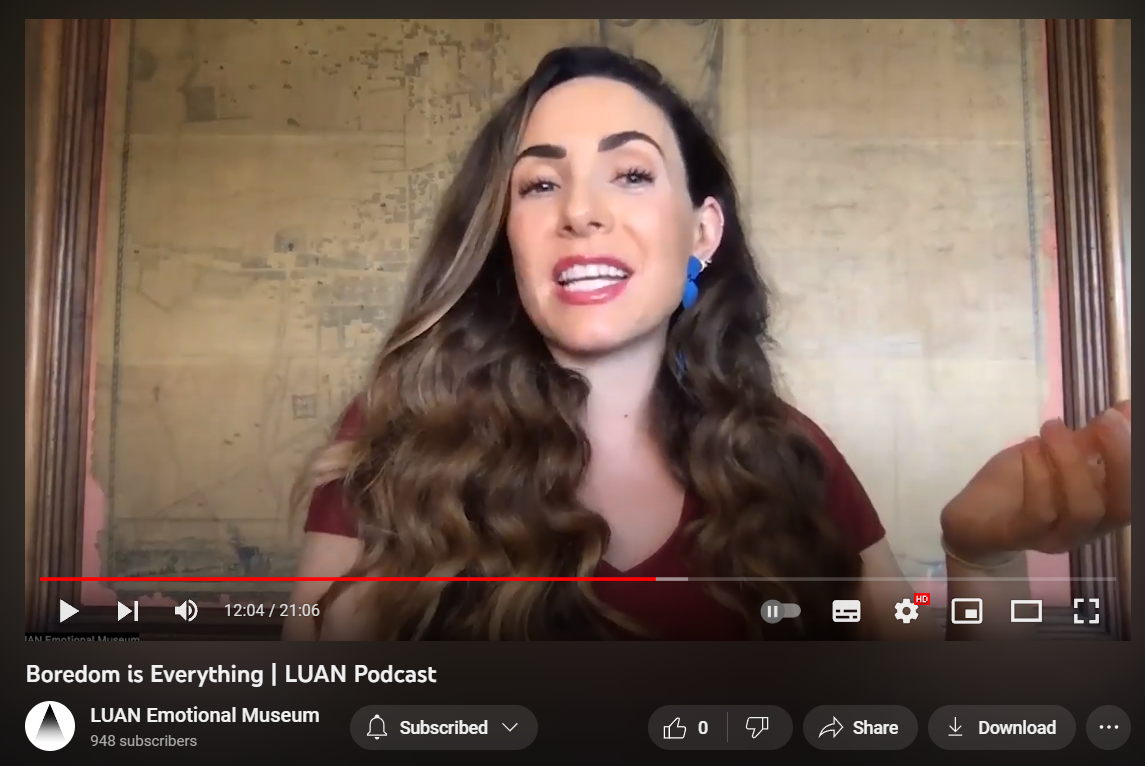
Have you had any incidents where you came up with ideas and great productivity while doing nothing? Let's train our brains to be comfortable in unpleasant situations, engage in mindless activities, and unplug things that could stimulate us.
Let's train to be bored.
We invite you to watch it or read our short transcript from the podcast.
"All of humanity's problems stem from man's inability to sit quietly."
- Blaise Pascal
Our loss of boredom in contemporary society is one of the most significant, weirdest ambient losses. Today I want to talk about the power of boredom and what we can miss out on in our lives because we are not getting used to being bored.
So let's start with boredom per se. So boredom is defined as a state of being bored, meaning lacking enthusiasm or interest, like not having anything to do. You can think of boredom as a deficit in meaning. It is one of these things that's hard to quantify the value of, and we've lost it so completely and totally that we very rarely have moments even to re-experience it unless we do so intentionally.
This might not sound like a massive cultural problem, but something we experience. It happens when you aren't engaged in anything active or doing something but don't care about it. And when we're bored, it could be the flatness, the vastness of the space. But I've recently discovered that boredom has many benefits and can change dramatically in an individual.
Some benefits of boredom include boosted creativity, enhanced productivity, effortless goal setting, and novelty exposure. So while most people chase ways to stimulate their brains, we can level up our lives by doing the opposite! Learning to unplug, slow down, and embrace being still and doing nothing.
In 2014, there was a famous study called "The Challenges of the Disengaged Mind," participants were placed in a room alone for up to 15 minutes with nothing to do but think. They also had the choice to give themselves an electric shock by pushing a button next to them. Even though there was no pressure on the participants to shock themselves, many also said they paid money to avoid the shock beforehand. To everyone's surprise, 25% of women and 67% of men still chose to push the buttons and shock themselves.
People would rather experience physical pain than be bored! And believe it or not, we all do the same thing daily!
So what's the solution for this? If you quote Blaise Pascal says, "All of humanity's problems stem from man's inability to sit quietly" in a room alone. And another quote, "if you are way too busy to meditate every day for ten minutes, then you should sit down and meditate for an hour." I love that quote.
Another benefit is that boredom helps us establish meaningful goals, so that distressing feeling when we're bored acts like a mental alarm bell to tell us. Boredom can make us reevaluate our actions and motivate us to shift our goals to another activity that better meets our expectations or desires.
When we're bored, our mind wanders, thinks, and as we think a lot more about what we want from life, we know better about ourselves. We can only expect to learn something by knowing our objective and self. This is known as autobiographical planning.
Planning can be incredibly helpful in discovering and realizing our learning goals. So a significant proportion of imaginative opportunities the mind's wandering state provides are devoted to prospection.
The last benefit I've pinned is that boredom exposes us to novelty. Boredom gives us a state of adventure and encourages us to seek out novelty and something new. This ingredient helps cultivate humans as an intelligent and curious species.
"Curiosity is the antidote to boredom."
Suppose we don't allow ourselves to be bored. In that case, we'd be less motivated to challenge accepted ideas and practices and therefore miss out on opportunities to further our knowledge and understanding of the world. So how do we incorporate boredom into our lives?
We need to do mindless activities. We need to find an activity that requires no stimulation or concentration whatsoever.
Let's schedule boredom time! We're so used to living busy times and never-ending to do this that we rarely have time to rest, nap less, or even have bored time. So this is why it's essential to schedule time for boredom in our calendar actively.
When was the last time you did nothing but think? Let us know how you feel.
Subscribe to our YouTube Channel here https://www.youtube.com/@luanemotionalmuseum9430
Follow LUAN Emotional Museum across Instagram: https://www.instagram.com/luanemotionalmuseum/


